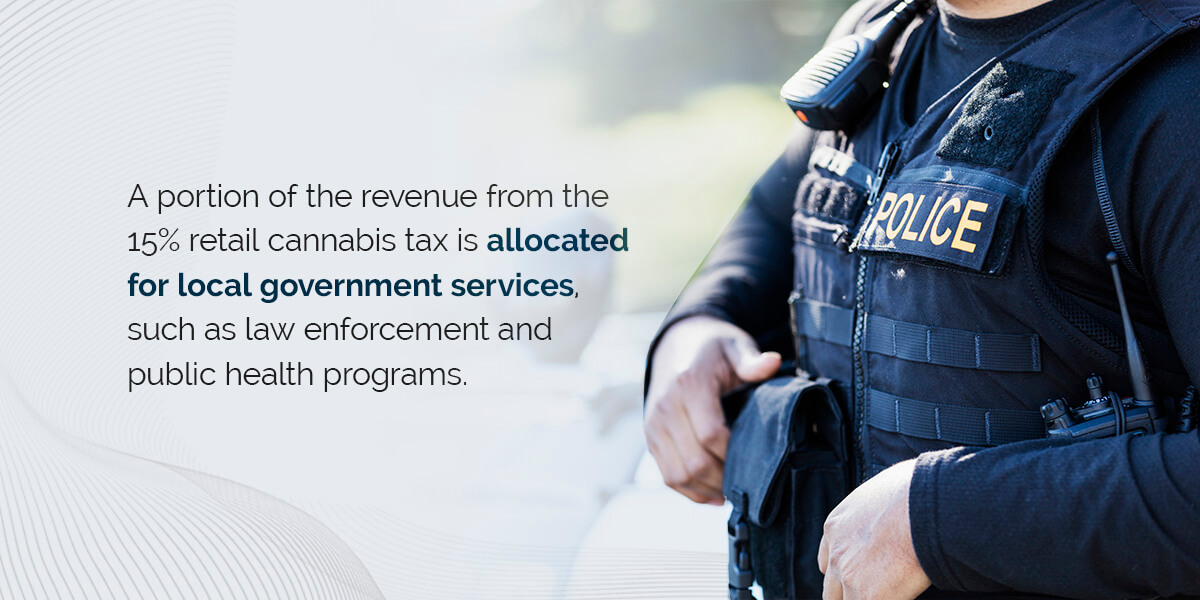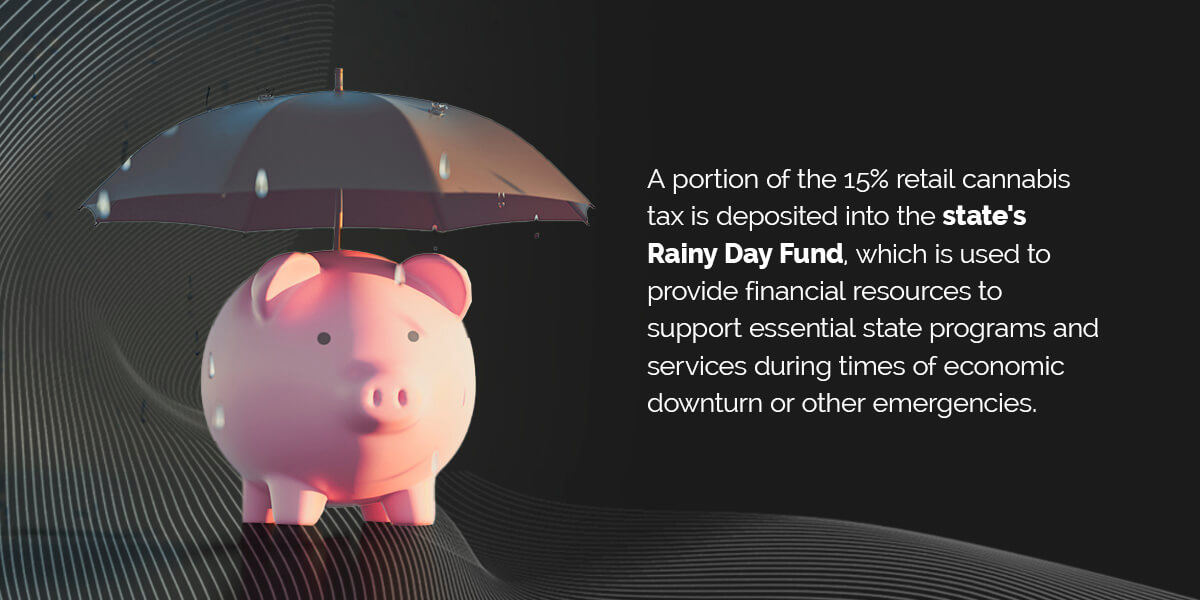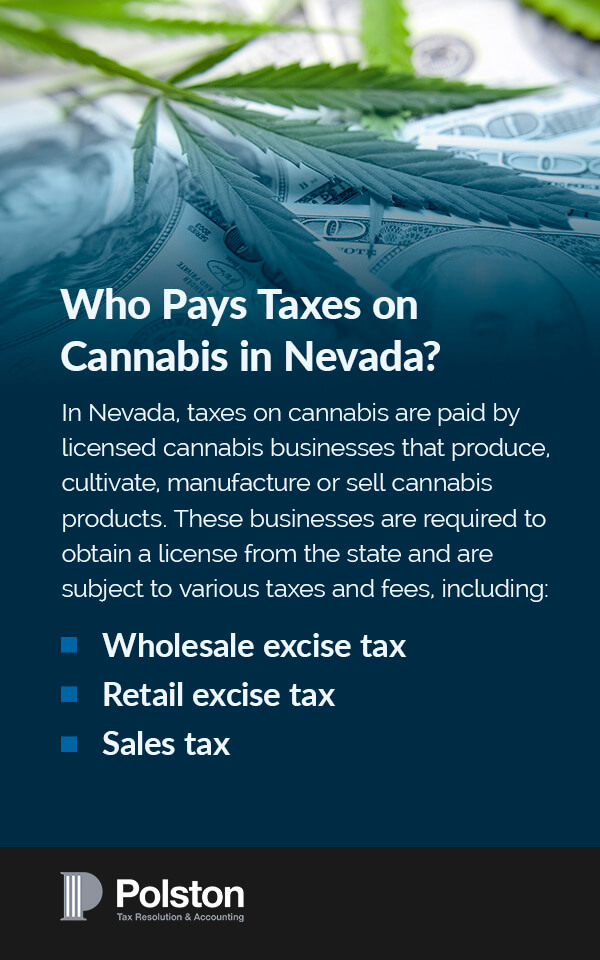
100+ Years of Combined Tax Resolution Experience.
100+ Years of Combined Tax Resolution Experience.
Since Nevada legalized recreational marijuana in 2017, the state has been collecting millions of dollars in tax revenue from the industry. But where does all that money go?
Below, we take a closer look at the breakdown of tax revenue from the marijuana tax in Nevada and explore how the funds are being used to benefit the state and its residents. From education to homelessness, we’ll examine the various areas that are receiving funding from this new source of tax revenue and the impact it’s having on the community.
Table of Contents
Nevada Recreational Marijuana Taxes
Nevada imposes a tax on recreational marijuana sales, which is made up of two parts — a 15% excise tax and a sales tax. The 15% excise tax is imposed on wholesale transactions between cultivators and retailers and is based on the fair market value of the marijuana. The sales tax is currently set at 10% and is applied to the retail price of recreational marijuana products.
The revenue generated from these taxes is then distributed to various programs and services. A portion of the revenue goes to the state’s Distributive School Account, which funds K-12 education. A portion also goes to the state’s Rainy Day Fund, which is used to address budget shortfalls in the event of an economic downturn. Additionally, a portion of the revenue is earmarked for specific programs, including homelessness programs.
These taxes and their distribution are subject to change over time as the industry continues to evolve and the state adjusts its policies and priorities. Reach out to us at Polston Tax to learn more about Nevada recreational marijuana taxes.
How Nevada Marijuana Tax Is Used
The Nevada cannabis tax is used for education, homelessness programs and the state’s emergency fund.
Taxes for Education
In Nevada, a portion of the tax revenue generated from the sale of cannabis is allocated for education. Specifically, the funds are deposited into the Distributive School Account, which is used to fund public K-12 education in Nevada.
Additionally, a portion of the revenue from the 15% retail cannabis tax is allocated for local government services, such as law enforcement and public health programs.
Since legalizing recreational cannabis in 2017, the state of Nevada has generated significant revenue from the industry, with more than $150 million in tax revenue collected in 2021 alone. This revenue has been used to support a variety of public programs and services, including education.
Taxes for the Homeless
In Nevada, revenue generated from the sale of cannabis is not specifically allocated for homelessness programs. However, a portion of the revenue from the 10% excise tax on wholesale sales of cannabis and cannabis products can be used to support a range of public programs and services during times of economic hardship.
In addition to the revenue generated from cannabis sales, the state of Nevada has also implemented various initiatives and programs aimed at addressing homelessness. For example, the Nevada Homeless Alliance is a collaborative effort between state and local government agencies, nonprofit organizations and community members to provide services and resources to people experiencing homelessness. The state has also allocated funding for affordable housing projects and homelessness prevention programs.
When marijuana first became legal in Nevada, business license fees and taxes went straight to Nevada’s emergency fund. In 2019, the county decided to allocate more money to homeless organizations. These include HELP of Southern Nevada and the Shannon West Homeless Youth Center.
Taxes for Nevada’s Emergency Fund
A portion of the tax revenue generated from the sale of cannabis in Nevada is allocated to the state’s emergency fund. Specifically, a portion of the 15% retail cannabis tax is deposited into the state’s Rainy Day Fund, which is used to provide financial resources to support essential state programs and services during times of economic downturn or other emergencies.
The Rainy Day Fund is a reserve fund established by the state of Nevada to help ensure financial stability during times of economic uncertainty. The fund can be used to support a wide range of state programs and services, including public safety, education, healthcare and transportation infrastructure.
If you want to learn more about how cannabis taxes are used in Nevada, contact us at Polston Tax.
Is Marijuana Taxing Stable?
The marijuana tax revenue in Nevada has been relatively stable since the legalization of recreational cannabis in 2017. In fact, the industry has been a significant source of revenue for the state.
While there have been some fluctuations in tax revenue from year to year, the trend overall has been a steady increase in revenue. This stability can be attributed to several factors, including the continued growth of the cannabis industry in Nevada, increased consumer demand and the state’s well-established regulatory framework for the industry.
In addition to the stability of tax revenue generated from the sale of cannabis, the industry has also created new jobs and economic opportunities in Nevada. As a result, the state has continued to support and invest in the industry, which has helped to ensure its ongoing success and stability.
Who Pays Taxes on Cannabis in Nevada?
In Nevada, taxes on cannabis are paid by licensed cannabis businesses that produce, cultivate, manufacture or sell cannabis products. These businesses are required to obtain a license from the state and are subject to various taxes and fees, including:
- Wholesale excise tax: A tax on the wholesale price of cannabis products is paid by cannabis cultivators and manufacturers.
- Retail excise tax: A tax on the retail price of cannabis products is paid by cannabis dispensaries and retail stores.
- Sales tax: A state sales tax and any applicable local sales taxes are paid by consumers at the point of purchase.
These taxes and fees are collected by the Nevada Department of Taxation. If you are unsure whether you need to pay taxes on cannabis in Nevada, turn to Polston Tax.
Working With a Cannabis Industry Tax Professional
There are a few reasons why a marijuana dispensary owner may want to work with a tax professional who has experience in the cannabis industry, like Polston Tax.
One of the main reasons to work with a tax professional who is familiar with the cannabis industry is to ensure compliance with the complex tax regulations that apply to the industry. The taxation of marijuana businesses can be especially complicated, as the industry is subject to both state and federal taxes, and the tax rules can vary depending on the nature of the business and the products sold.
A tax professional who has experience working with marijuana businesses can help ensure your dispensary complies with all applicable tax laws, including issues related to income tax, excise tax and sales tax. At Polston Tax, we can also help you take advantage of available deductions and credits to help reduce your tax liability.
In addition to tax compliance, we can help you with tax planning and strategy. This may include structuring your business in a tax-efficient manner, implementing accounting systems to track and manage your tax liabilities, and developing strategies to minimize your tax burden over time.
Overall, we can help you navigate the complex tax landscape and ensure your dispensary complies with all applicable tax laws while optimizing your tax position over the long term.
Contact Polston Tax to Learn More About Nevada Weed Tax
Do you own a marijuana dispensary or are thinking about joining the business? We’re happy to provide you with any tax help. Contact us at Polston Tax to learn more about the marijuana taxes in Nevada.
More On Cannabis CPA Accounting & Tax Services
- Nevada Cannabis CPA Accounting & Tax Services
- Cannabis CPA Accounting & Tax Services
- 280E Tax Code: Everything Cannabis Entrepreneurs Should Know
- Common Accounting Problems That Cannabis Businesses Face
- The Benefits of a Tax Resolution Attorney for Your Cannabis Business
- The U.S. Tax Court Takes On Cannabis Businesses
Additional Readings

The Internal Revenue Service (IRS) is increasing audits on cannabis businesses — the agency is on a mission to ensure that cannabis businesses adhere to the tax code. Unfortunately, cannabis companies must comply with more strict tax laws than other businesses and can claim fewer deductions. Most business owners don’t realize this or aren’t able to meet the reporting responsibilities on their own. If you own a business in...

Since marijuana is becoming legalized in many states, more businesses are emerging to serve these new markets legally. If you’re a new marijuana company, you’re about to enter your first tax season. This is going to be much different than what you’ve experienced in doing taxes before. Read on to learn about marijuana taxes and...
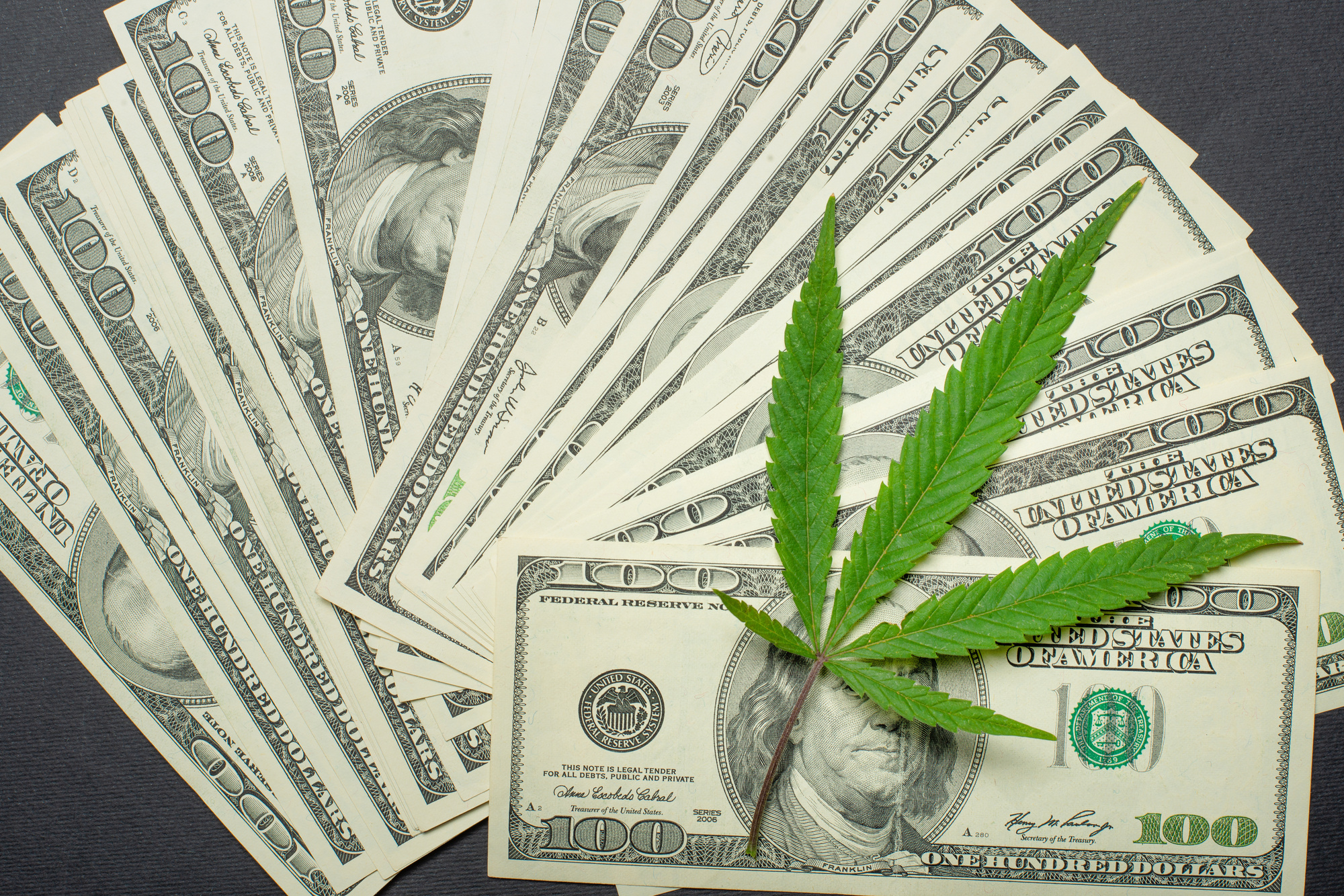
Did you know that the largest legalized cannabis market in the world is North America? This region accounts for almost all cannabis sold around the world, and the market is still growing. If you’re in the cannabis industry, you know that it can be a tricky business to navigate. With constantly shifting regulations and laws,...

As a medical cannabis producer, you are on the vanguard of a prosperous industry where you offer a valuable alternative remedy for people who desperately need it. If your state has yet to allow recreational marijuana use, you are probably also ready to make the shift once the law allows. Of the many challenges you...
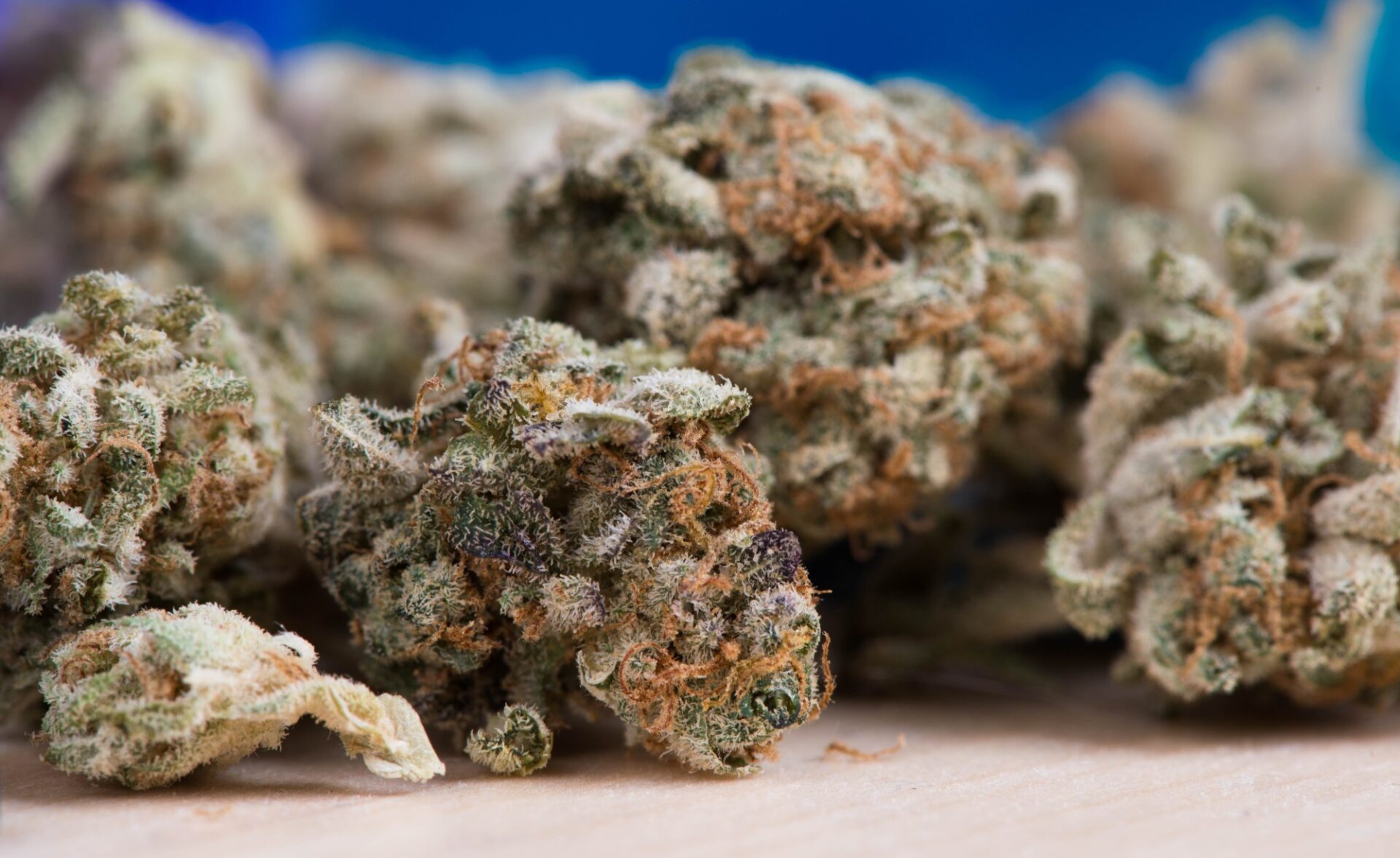
As of early 2023, cannabis-related legislation for both medicinal and recreational use has passed in numerous states. In fact, more states have legalized marijuana for either medicinal or recreational use than states that have not. With states rapidly approving marijuana legislature, cannabis sales are quickly becoming a large component of the American economy. By the end of 2023, marijuana retail sales...
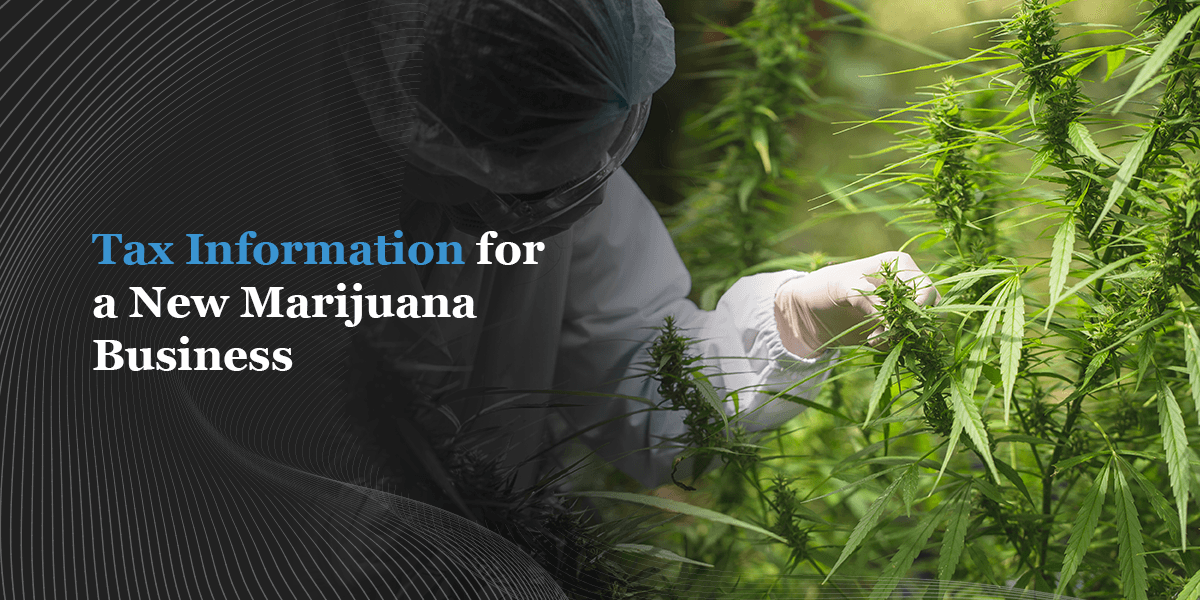
It’s never been a better time to consider starting a marijuana business. In the United States, the most commonly used, federally illegal drug is marijuana. Approximately 48.2 million Americans have used marijuana at least once. With new laws getting passed, the legalization of marijuana across the country is within reach. The global legal cannabis market is projected to reach $63...

